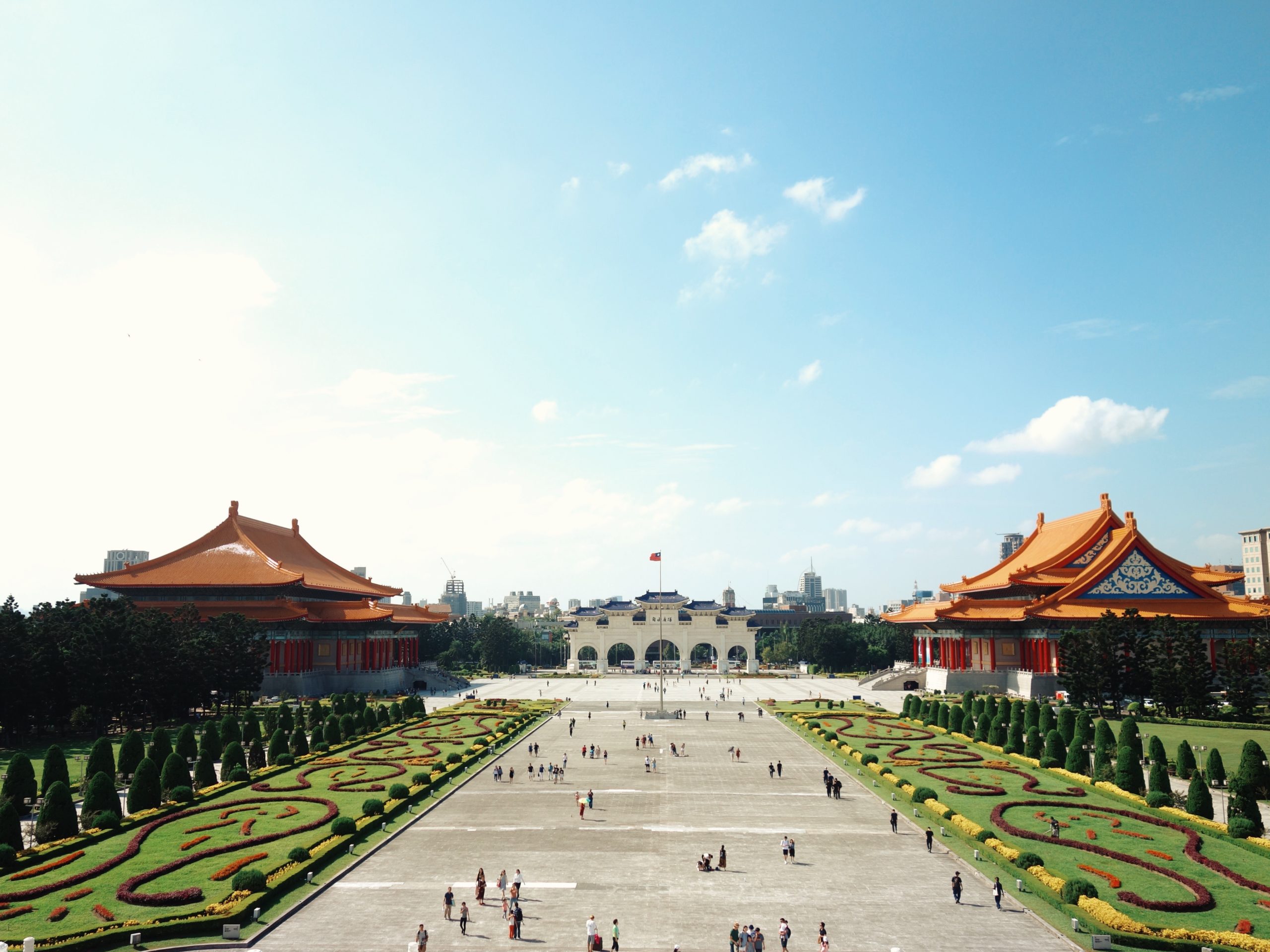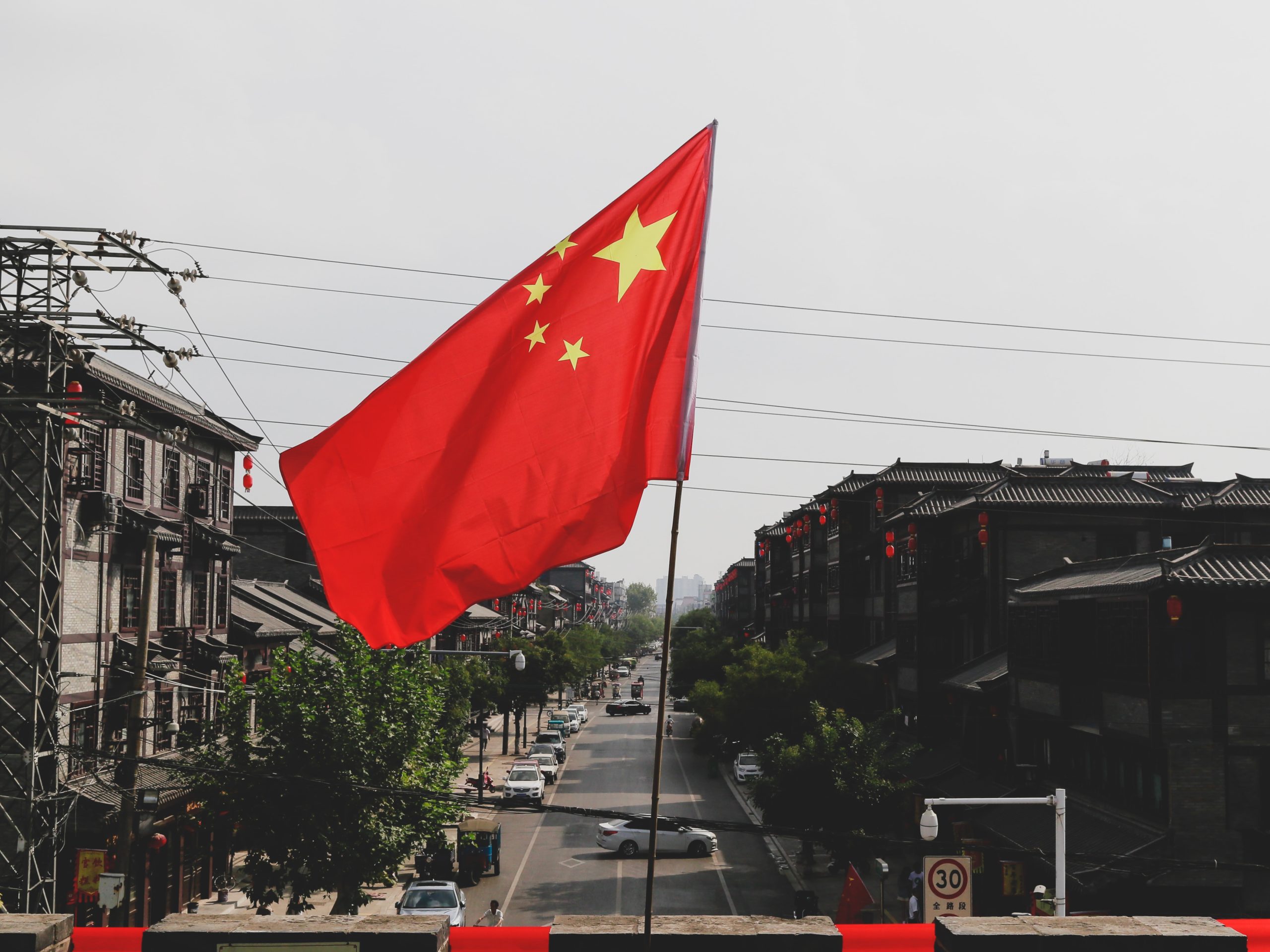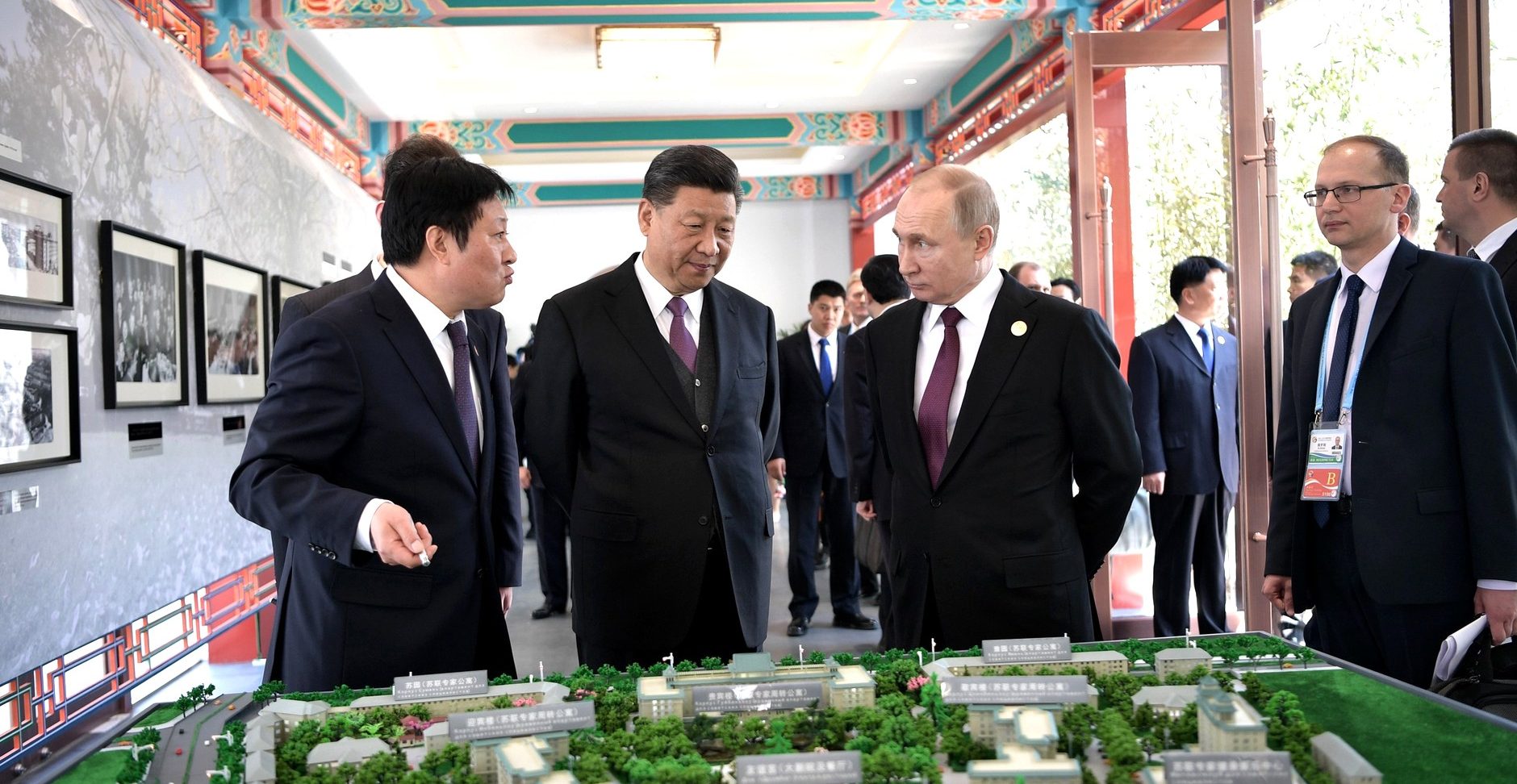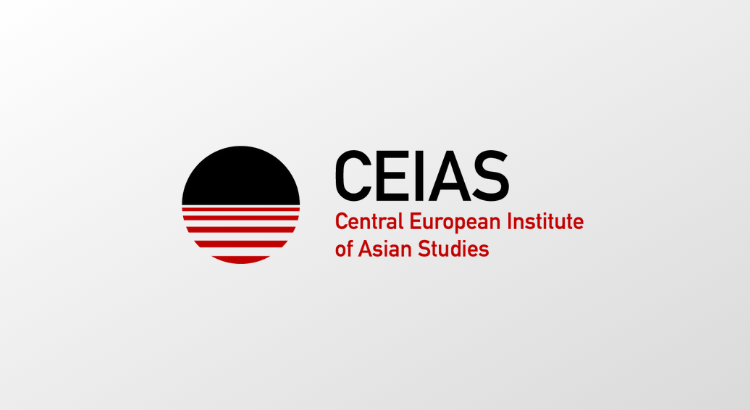Following Nancy Pelosi’s visit to Taiwan, Chinese media have extensively focused on portraying the US as a destabilizing element of global security and peace. At the same time, one can sense an intensifying urgency in the discourse about national reunification, betraying Beijing’s attempts to use Pelosi’s visit as a pretext to create a “new normal” in the Taiwan Strait.
On her tour around the Indo-Pacific, Nancy Pelosi, speaker of the US House of Representatives, stopped in Taiwan on 2 August for a visit that lasted less than 24 hours. During her stay, Pelosi met with Taiwan’s president, Tsai Ing-wen, and other high-ranking government officials to discuss US-Taiwan relations, democratic governance, security issues, human rights, economic and trade cooperation, the pandemic, and the climate crisis.
Predictably, China sanctioned Pelosi and her family and, in response to her visit, announced eight countermeasures, including canceling and suspending bilateral talks in multiple fields such as military, law enforcement, and climate change. Her presence on the island escalated tensions in the Taiwan Strait to the extent that some commentators referred to it as the “fourth Taiwan Strait crisis”. How did Chinese media shape the narrative accompanying the news about the potential visit and in its aftermath?
The US-China disagreement
Pelosi’s visit to Taiwan was originally planned for April 2022 but was postponed after she tested positive for Covid-19. As Pelosi was the highest-ranking elected US official to visit Taiwan since Newt Gingrich (also House Speaker) in 1997, her potential visit became the main focus of Chinese (and international) media. The effect might have been different if the information was not disclosed too much in advance, which was typical of the previous US delegations to Taiwan.
Pelosi’s visit sparked heated discussions not only in China, where the reaction was the sharpest, as it came at the moment of an already fragile relationship between Washington and Beijing on the Taiwan issue. Over the last few years, Beijing has made note of Washington’s actions, which may signal an undeclared shift in the US’ ‘one China’ policy: the Taiwan Relations Act and the Six Assurances, three statements from President Biden eroding strategic ambiguity, several congressional visits to the island, a rewording of a fact sheet about US relations with Taiwan on the State Department website, a boost in US troop numbers on the island, as well as the statement of Assistant Secretary of Defense for Indo-Pacific Security Affairs, Ely Ratner, that Taiwan’s security was vital to the US. The White House sought to distance itself from Pelosi’s trip ahead of time and Washington confirmed the visit would be consistent with its ‘one China’ policy. However, in Beijing’s eyes the provocative move was just a culmination of US efforts to contain China.
Before it was officially confirmed whether Pelosi would include Taiwan in her itinerary, Beijing warned about the implications through a statement of China’s Foreign Ministry, which was subsequently widely covered in Chinese media. “If House Speaker Pelosi visits Taiwan, it will seriously violate the one-China principle and the three Sino-US joint communiqués, seriously damage China’s sovereignty and territorial integrity, seriously impact the political foundation of Sino-US relations, and send a seriously wrong signal to Taiwan independence separatist forces. China is firmly opposed to this,” it stated.
Similarly, Beijing’s commitment to counter-react if Pelosi visited the island appeared in several newspaper headlines. “If the US side insists on going its own way, China will take strong countermeasures to resolutely respond,” one stated.
Playing with fire?
Although the official statements did not specify what the measures would be, the media signaled the possibility of a military escalation. For instance, an article in the state-affiliated daily tabloid Global Times pointed out that “the frequency of Chinese warnings and the remarks of various government departments fully demonstrate China’s determination to take necessary military measures to counter US provocations and safeguard national sovereignty and territorial integrity.” The piece further analyzed the official statements, such as the one by China’s Foreign Ministry that made use of the Chinese idiom “yanzhen yidai” (in English translated as “to stand in combat readiness”) or the People’s Liberation Army (PLA) statement that it “would not sit by idly” should Pelosi visit Taiwan. The latter is interpreted by Hu Xijin, the former editor-in-chief of the media, as “having all personnel in place and all ammunition ready for a possible conflict.”
“Don’t say we didn’t warn you” was the headline of another article in the Global Times regarding a forum held on 29 July by the Institute of Taiwan Studies in the Chinese Academy of Social Sciences, which discussed the damage of Pelosi’s potential visit to Taiwan on the China-US relations, cross-Strait stability, and China’s countermeasures. According to the article, during the forum it was concluded that “the military response from the Chinese mainland will be larger in scale and upgraded from the ones during the 1995-96 crisis of the Taiwan Straits”.
Similarly, commenting on the message conveyed by President Xi Jinping during his call with Biden – “those who play with fire will perish by it” – Liu Weidong, a researcher of the Institute of the US, China Academy of Social Sciences, in an interview on Ifeng, pointed out that although the expression may have been made by officials at other levels in the past, the strength of the signal is definitely different when made during direct phone calls between the heads of states. “This statement reflects the common aspirations of a country as a whole and all the people. I hope the US can see that the meaning of the statement is different this time,” Liu Weidong said.
Of the speculation about Beijing’s potential reaction to Pelosi’s visit to Taiwan, it is worth mentioning one of Hu Xijin’s statements following the news that Pelosi’s plane to Taiwan would be escorted by the US Air Force. Hu Xijin, a journalist known for his nationalist and radical statements, posted on his social media that as long as the US Air Force dared to approach the Taiwan Strait, the PLA would have the right to shoot down Pelosi’s plane. Although the post on Twitter had to be deleted due to the violation of the platform’s rules, his statement attracted wide attention on the Chinese internet. Comments under an article published by the account of the Beijing Huayue Think Tank, referring to Hu Xijin’s claims, show that they did not lack support;the most liked comments call for action, using Pelosi’s visit as an opportunity to take Taiwan back and openly discuss the scenarios of how to shoot down the plane.
Nationalism in Beijing’s official rhetoric in combination with calls for a direct PLA’s response from some public voices, as well as media quoting experts regarding the possible military scenarios, led to high expectations of a tough retaliation among some Chinese citizens. As discussions on the Chinese internet show, this might have been to a great extent the effect of Hu Xijin’s influence. In an environment where the media is strongly interconnected with the state apparatus, it is not surprising that statements, such as the one of Hu Xijin, can be interpreted as official narratives. Similar sentiments might have been surged by reports, such as Caixin Global’s reporting about the status of the Eastern Theater Command of the Chinese People’s Liberation Army (PLA) on its official Wechat media account: “Ready to battle, fight on command and bury all the enemies that come to offend us, move forward towards victory.”
On the other hand, it is worth noting that the official rhetoric remained vague about the possible countermeasures until the confirmation of Pelosi’s visit to Taiwan, as seen in China’s military and Foreign Ministry statement from 1 August. as reported by he Beijing News. “The identity of Speaker of the House of Representatives Pelosi determines that her visit to Taiwan is highly sensitive. If she visits Taiwan, China will take a firm response and strong countermeasures to defend its sovereignty and territorial integrity. As for what measures these are, let us wait and see,” it stated.
New status quo
Unlike Hu Xijin’s extreme and populist scenarios, Pelosi’s plane safely landed in Taiwan on the evening of 2 August. Xinhua News Agency immediately published an Authorized Announcement that the PLA would conduct live-firing military drill operations around Taiwan from 12:00 Beijing time on 4 August 2022 until 12:00 Beijing time on 7 August 2022. The live-fire military drills were eventually extended until 10 August, with record-breaking numbers of aircraft and warships crossing Taiwan’s median line and temporarily interrupting the freedom of navigation in the waters and airspace of Taiwan.
Ma Zhaoxu, the vice foreign minister, denied the existence of the median line in the Strait and justified the measures as “open and appropriate, in line with domestic law, international law and international practice, and beyond reproach.”
Consensus on the Taiwan issue has always been an impossible challenge in US-China relations. Per PRC’s definition of its one-China principle for the international community, “there is only one China in the world, Taiwan is a part of China and the government of the PRC is the sole legal government representing the whole of China.” However, this is not the same as the one-China policy of the US. Washington’s position has been intentionally ambiguous and merely acknowledges the Chinese position that Taiwan is part of China.
The US condemned the drills as an overreaction and accused Beijing of attempting to break the status quo in the Taiwan Strait. On the other hand, China’s interpretation of the accusation was “the US is making excuses for its wrong deeds and provocations and trying to shift blame,” said Senior Colonel Wu Qian, a spokesperson of China’s Ministry of National Defense.
Although not surprising, the total disagreement on the sensitive matter predicts no room for indulgence from Beijing’s side as seen in a Foreign Ministry’s statement:“Currently, the situation in the Taiwan Strait is facing a new round of tension and severe challenges. The fundamental reason is that the Taiwan authorities and the United States are constantly changing the status quo. The US side is trying to use Taiwan to control China, constantly distorting and hollowing out the one-China principle, strengthening official exchanges between the United States and Taiwan, and supporting the Taiwan independence separatist activities. This is a very dangerous act of playing with fire, and those who play with fire will set themselves on fire.”
The above communication once again shows that Beijing cannot be easily satisfied by Washington’s affirmations of its ‘one China’ policy when the context shows continued changes in the implementation of that policy. As a result, the new dominant narrative in Chinese media portrays Washington as undermining global security and peace. “Facts have proved time and again that the US is the biggest destroyer of peace across the Taiwan Strait and the biggest troublemaker of regional stability. If the international community allows the US to behave in a wayward way, the UN Charter will become a dead letter, the law of the jungle will prevail, and the developing countries will suffer,” warned Vice Foreign Minister Ma Zhaoxu, as quoted in the Global Times.
One could easily tell from official statements and the Chinese media that the discourse is shifting toward a narrative, in which the destabilizing US is manufacturing the crisis in Taiwan’s Strait and that China needs to react. “China to turn on a new status quo for Taiwan situation as the US has broken the old one” is just one example of a headline suggesting that Beijing is using the situation as a pretext to create a new normal in the Taiwan Strait.
To support this argument on the information front, the Chinese media adopted a very common instrument: showing that international voices side with Beijing and condemn Washington’s behavior. “More than 170 countries and many international organizations have voiced their just voices, reaffirming their adherence to the one-China principle and their support for China’s resolute efforts to safeguard its sovereignty and territorial integrity,” reported the Global Times, referring to an official comment of foreign ministry spokesperson, Wang Wenbin, during a regular press conference. As for the condemnation of the G7 countries, Spokesperson Ma Zhaoxu was quoted saying, “what is the Group of Seven compared to 170 countries? Does anyone care what they say?”
As an analysis of foreign ministry statements from across the Asia-Pacific region reveals, what China’s Foreign Ministry interprets as support from 170 countries includes a wide range of implications. While some, such as Russia, Myanmar and North Korea explicitly stand on China’s side, reiteration of many other countries’ commitment to one-China policy in their official statements about Pelosi’s visit do not necessarily prove alignment with Beijing. This is simply because every single country that issued a statement included such rhetoric – including the US, which clearly disagrees with China’s position.
Among the obvious supporters of China, Russia openly blames the US, as seen on a statement from Russia’s president, Vladimir Putin, reported by Chinese media saying that “Pelosi’s trip to Taiwan was a well-planned provocation by the US, whose purpose was to disrupt the situation in the Asia-Pacific region. The move was a blatant manifestation of disrespecting the sovereignty of other countries and its own international obligations.” In the context of the Russian aggression on Ukraine, it is not difficult to understand the meaning of Putin’s words and their role in Chinese propaganda.When it comes to Taiwan, China has clear plans on how to safeguard national sovereignty and territorial integrity.
“The historical trend that Taiwan will return to the motherland is irrevocable” reported Xinhua, quoting Wang Yi at the ASEAN meeting of foreign ministers in Cambodia after Pelosi’s visit. Similarly, “China’s complete reunification is unstoppable” was the headline of another Xinhua article.
The unstoppable reunification
Xinhua and Caixin reported that the Taiwan Affairs Office of the State Council and the Information Office of the State Council published a white paper on The Taiwan Issue and China’s Reunification in the New Era on 10 August. The document, updating the previous white papers on Taiwan issued in 1993 and 2000, reaffirms that “Taiwan is part of China, demonstrating the firm will and strong determination of the Communist Party of China (CPC) and the Chinese people to pursue the reunification of the motherland.”
After the release of the paper, the media flooded with content about national reunification. The Chinese Communist PArty’s mouthpiece, the People’s Daily, published an editorial on its front page claiming that the process of complete reunification of the motherland was unstoppable. A commentator for the Xinhua News Agency called for majestic forces to gather to promote the unification of the motherland and national rejuvenation. China Youth Daily carried an article arguing that peaceful reunification and one country, two systems were the best solutions to the Taiwan issue. CCTV commented that Taiwan’s future lay in national reunification.
In the context of Pelosi’s visit to Taiwan, the timely release of the document and the extensive media coverage created powerful propaganda further promoting nationalism and conditions to justify Beijing’s future actions. The Global Times quoted Wang Yingjin, director of the Center for Cross-Straits Relations studies at the Renmin University of China, claiming that “the more violently external forces play the ‘Taiwan card’ the faster and stronger Chinese central government will be in promoting reunification.” Pelosi’s visit to the island is, in fact, portrayed in the Chinese narrative as a turning point giving Beijing a reason to quicken the process of returning Taiwan to the motherland. One can easily see how the conditions for gaining the initiative in the context of a destabilizing US factor are gradually building a dominant narrative leading to no choice but reunification.
Non-ending tensions
Four weeks after Pelosi’s visit to Taiwan the topic is still highly relevant in the Chinese media. The US, which was to “correct its wrong deeds” in order to restore bilateral communication with China, continues engaging with Taiwan, as seen with more delegations of lawmakers visiting the island, the announcement of a new trade and investment cooperation, plans to speed up arms sales, and US Navy warships entering the Taiwan Strait to demonstrate its commitment to a free and open Indo-Pacific.
For Taiwan, this is a reassurance of the US commitment and a boost for its much-needed visibility. But in Chinese media, such moves are referred to as “wrong signals that encourage Taiwan’s secessionist Democratic Progressive Party to go against reunification with force and seek foreign support. This way the possibility of peaceful reunification is seriously shrinking, which makes the People’s Liberation Army’s (PLA) routine training and drills for a military solution around the island increasingly necessary.”
Beijing’s reactions to Pelosi’s visit, as well as the Chinese media narrative, suggest a shift in China-US relations, where the latter is demonized to justify a new normal in the Taiwan Strait, including a more regular set of military operations against the island and regular crossings of the Taiwan Strait median line. While this helps Taiwan to internationalize the issue, it is to be seen how it is going to affect the island’s security and ability to engage with the international community in the long run.







